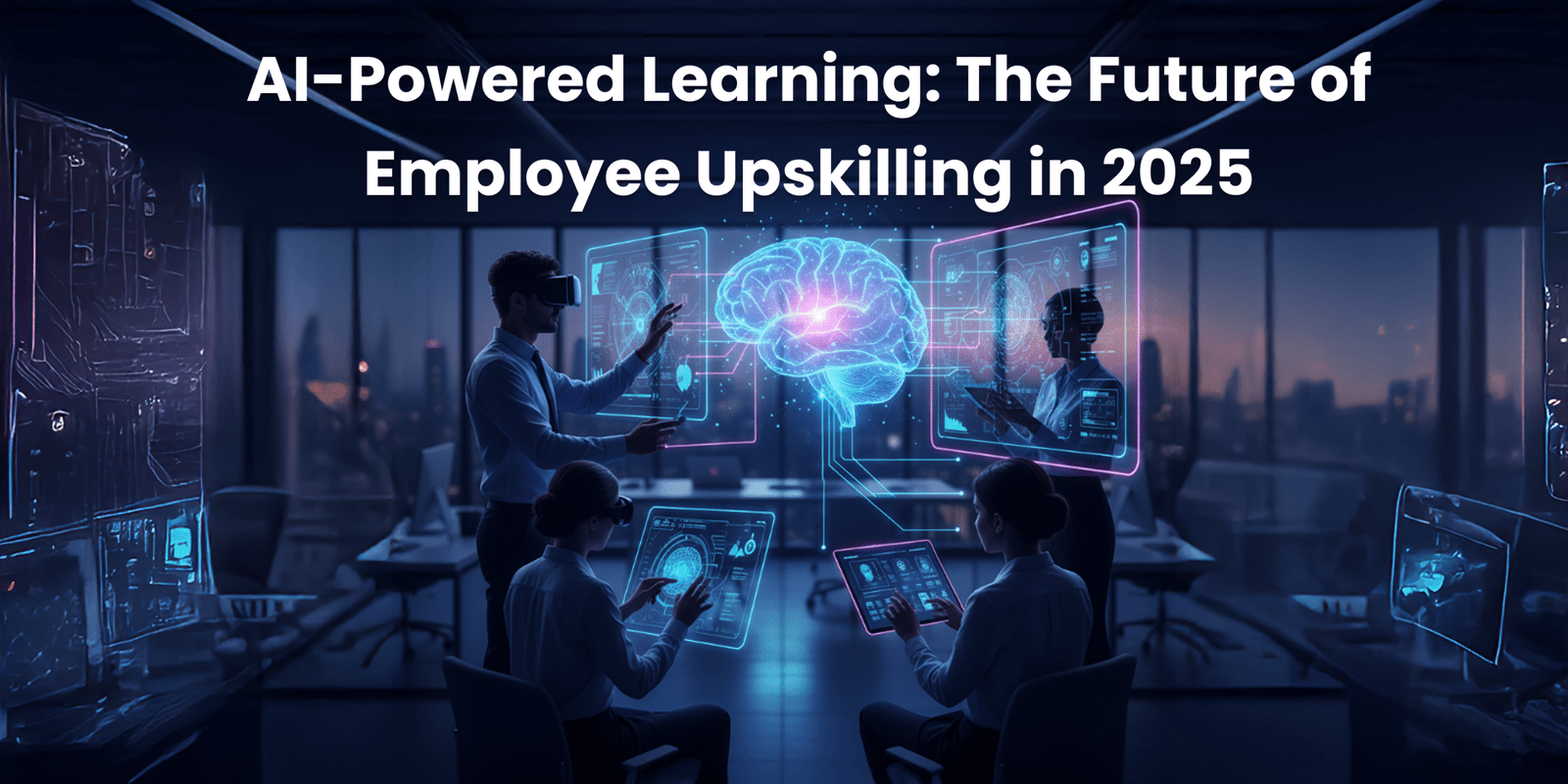AI-Powered Learning & Development is the new trend and the future of work. In addition, the digital transformation of the industry is taking place at a rapid speed, and for this reason, organizations must value an adaptive and flexibly trained workforce.
AI-driven Learning and Development (L&D) platforms are completely revolutionizing how employees learn and advance within their organizations. Specifically, AI doesn’t simply adopt existing material; it transforms traditional training into smart, data-driven systems by putting real-time analytics to work. Consequently, this shift is just beginning: we’re seeing personalized course features and learning pathways that unlock dynamically, based entirely on performance, launching a new era of smart upskilling.
The Rise of AI in Learning Corporate Learning
Adaptive learning systems learn the skills and career progress of each employee, replacing traditional learning.
Today’s AI-L&D systems analyze learning levels and outcomes by assessing data from HR systems and performance appraisal and then recommend tailored learning pathways. That ensures each employee gets the content at the right moment in time.
Key AI-driven features transforming L&D:
- Personalized Learning Paths: Tailored modules based on individual performance metrics.
- Skill-Gap Analysis: AI identifies missing competencies and suggests targeted learning.
- Predictive Upskilling: Algorithms predict which skills will be in demand next year.
- Virtual Coaches: Chatbot mentors provide real-time feedback and motivation.
- Performance Integration: Training outcomes link directly with appraisal systems.
Real-World Examples: AI in Practice
- Specifically, Infosys and TCS implement AI tools in identifying employee skills and subsequently allocating micro-learning activities.
- For instance, Google employs AI tools for ongoing learning by constructing knowledge pathways through skill-based pathways and knowledge graphs.
- Indian start-ups like Disprz and Enthral.ai are enabling enterprises with AI-driven learning analytics platforms — providing dashboards that visualize skill gaps, learner progress, and personalized learning paths.
These examples highlight a global trend: AI enhances the relevance, continuity, and personalization of learning, signaling a permanent transformation of the upskilling process.
Challenges to Address
While AI offers immense potential for L&D, organizations must proactively address the critical problems it introduces. Success hinges on resolving these key challenges:
Employee Data: Sensitive personal information must be managed expertly.
Bias: Unequal algorithm outcomes in skill assessments and promotions.
Digital Adoption: Employees must be assisted to shift to a digital-first learning system.
Alignment: AI tools must work with central HR systems and learning management systems.
The companies that will realize the potential of AI in learning are those that anticipate and resolve these challenges.
The Future of Corporate Learning
The upcoming stage of workplace learning will incorporate AR/VR-based experiential training alongside learning incorporated AI mentors and real-time skill dashboards, in addition to AI-generated recommendations.
Learning and Development departments will shift their focus from merely training employees to proactively anticipating their needs and preparing them for future, more advanced roles. Consequently, this transformation will, in turn, forge a work culture characterized by continuous learning, fearless adaptation, and relentless innovation.
Conclusion
The year 2025 will be the beginning of the end for old paradigms in corporate learning and talent development.
Such organizations will experience better retention, agile role adaptability, and a future-focus in empowered employees, all due to AI-driven learning and development.
Since skills will be the primary currency, AI will not replace learning; it will enhance learning. The time to develop new predictive learning and development ecosystems is now.



Pretty! This has been a really wonderful post. Many thanks for providing these details.
This is a great article, i am simply a fun, keep up the good work, just finish reading from https://websiteerstellenlassenbamberg.de// and their work is fantastic. i will be checking your content again if you make next update or post. Thank you
I always learn something from your articles.